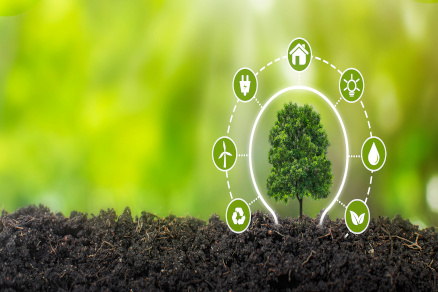
An Introduction to Environmental Sustainability
Learn the basics of environmental sustainability, from the scale of environmental problems, to key issues in sustainability.
Overview
Start to build your knowledge of environmental sustainability as we explain key environmental pressures, the scale of environmental problems, and key issues in sustainability. In addition, you'll learn about the main environmental and economic risks and opportunities, which you can apply in your role, whatever that might be in any industry or sector.
More detail
Course syllabus
Module 1: An Introduction to Environmental Sustainability
- Course Introduction
This introductory unit provides an overview of the An Introduction to Environmental Sustainability course, outlining the key learning objectives and what to expect from the modules ahead.
- Risks and Opportunities from Environmental Sustainability
We begin by defining environmental risks and opportunities, exploring how these concepts impact organisations. The unit also explains how to identify and assess these risks and opportunities within an organisational context.
- Key Environmental Pressures
This unit examines the major pressures affecting the environment, including climate change, pollution, and resource depletion. It also introduces the concept of planetary boundaries and explains how exceeding them threatens environmental balance.
- Sustainability Models and Sustainable Development
Here, we explore different models of sustainability and discuss how sustainable development can be achieved through responsible economic, social, and environmental practices.
- Environmental Sustainability Issues
In this unit, we look at the scale and scope of various environmental problems, such as waste, deforestation, and carbon emissions, while introducing key sustainability concepts used to address these global challenges.
- The Source-Pathway-Receptor Model
The final unit introduces the Source-Pathway-Receptor model, a framework used to understand how environmental problems originate, travel, and ultimately cause harm. This helps in identifying intervention points to mitigate environmental impacts.
Obtaining your certificate
You will need to pass a multiple-choice exam at the end of the course in order to gain your accreditation. Once passed, we will send your official certificate by email.
